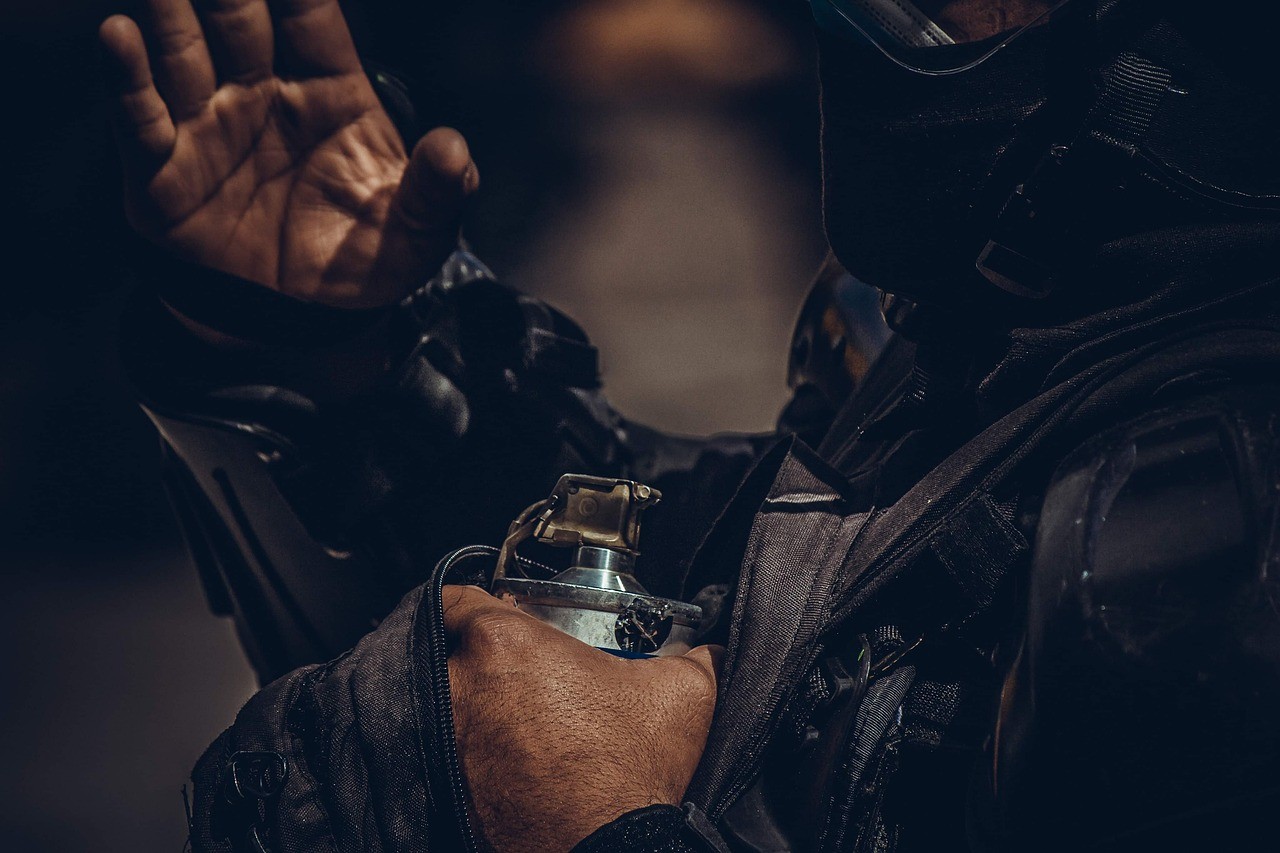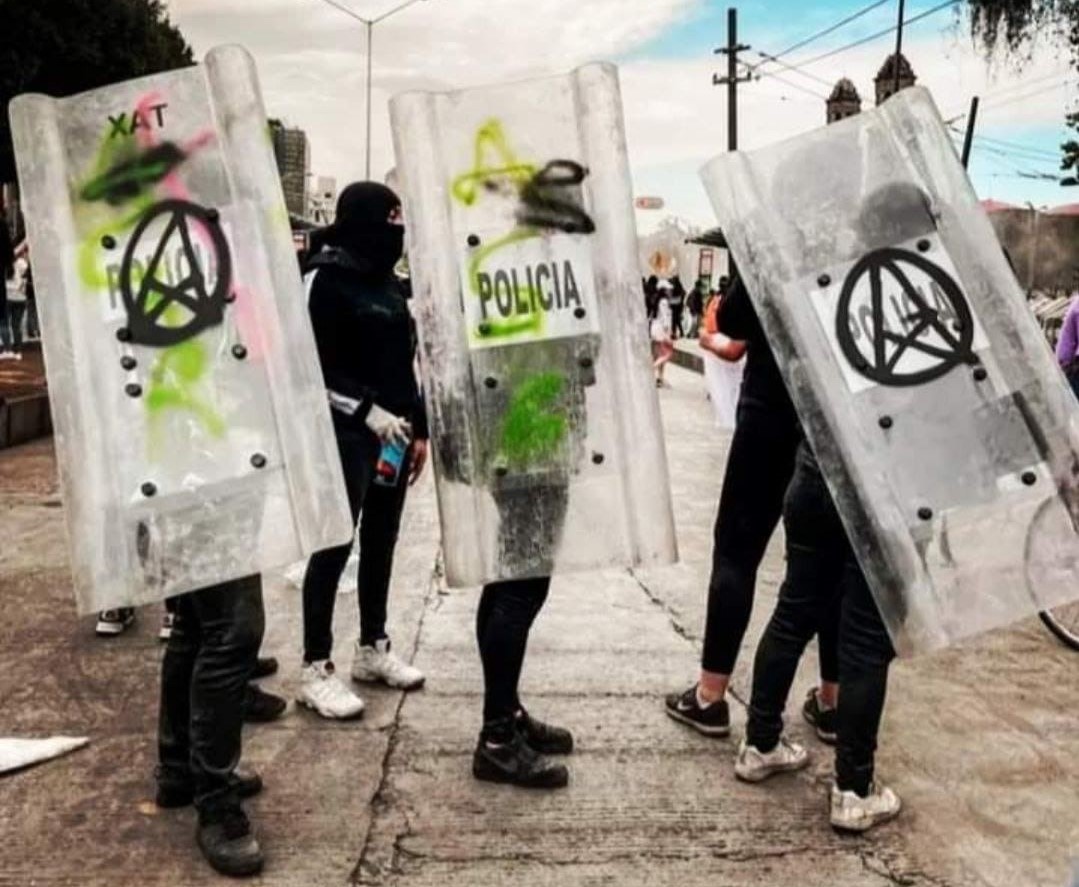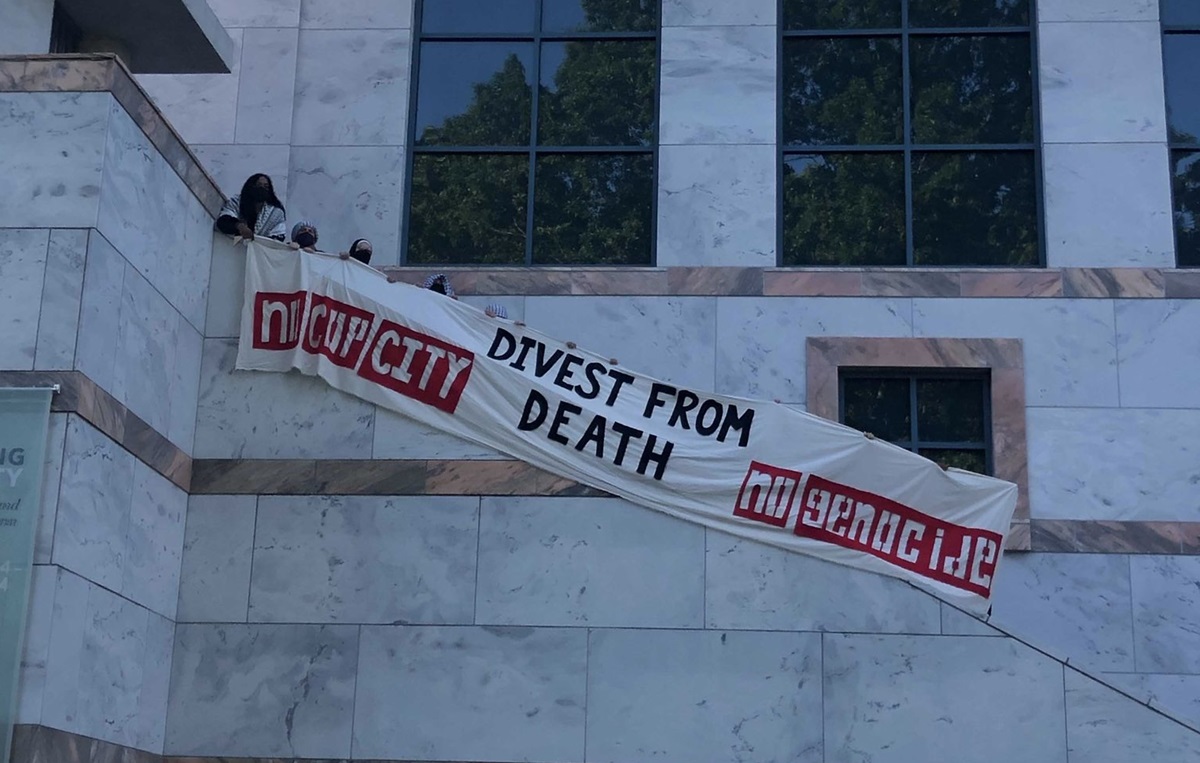Filed under: Action, Repression, Southeast

Report from the Atlanta Community Press Collective on recent proposal by a member of the Atlanta City Council to prohibit the wearing of ski masks “or other items that conceal the identity of the wearer.”
By: Matt Scott
During Monday’s regular council meeting, Atlanta City Council Member Antonio Lewis (District 12) introduced an ordinance to prohibit the wearing of ski masks or any other items that conceal the identity of the wearer.
The proposed city ordinance notes the rise of “casually wearing ski masks, bandanas or other devices” that conceal identities since the start of the COVID-19 pandemic, claiming this trend coincides with an increase in the number of people “wanted by the Atlanta Police Department who wore ski masks in the commission of a crime.” The text of the ordinance states, “in most cases, perpetrators use of a ski mask to conceal their identity has impeded law enforcement’s ability to identify and apprehend the individual.” No sources or statistics backing this claim are disclosed.
While the stated purpose of the ordinance is to help the APD more easily solve crimes, opponents of the ban quickly took to the X platform Monday evening to question the true intent of the law.
“I think this has little to do with robberies and everything to do with surveillance at protests,” wrote Tiffany Roberts, executive director for the Southern Center for Human Rights. “Remember, we are the US’ most surveilled city.”
Protest surveillance is of particular concern in Atlanta, which is home to a multi-year protest movement against a planned police training center opponents dubbed “Cop City”. It is common to see activists taking part in protests against the training center wearing face coverings, both for public health reasons and to combat surveillance of protest by police.
Surveillance by police is not the only concern activists now consider when deciding to hide their identities at protests. University of Georgia First Amendment Law Clinic Attorney Samantha Hamilton warns mask bans subject protesters to the risk of doxxing.
“The public record is rife with examples of pro-Palestine activists being doxxed and losing their jobs when their identities are disclosed,” said Hamilton. “We live in an age where identifying someone in a photo at a demonstration and contacting their employer about their political activity can take place in a matter of minutes. The proposed Atlanta ordinance forces people to subject themselves to an open season of doxxing, or else stop their public participation in political demonstrations altogether.”
Comparing Atlanta’s proposed anti-masking law
Anti-masking legislation is not a new phenomenon. 15 states including Georgia currently have some form of anti-masking laws on the books. Philadelphia recently passed its own ski-mask ban that, unlike Atlanta’s proposed ordinance, provides an exception for protests.
The language of the proposed city ordinance largely borrows from Georgia’s existing anti-masking statute and establishes exceptions for medical equipment like surgical masks, as well as facial coverings for religious, professional or holiday celebration purposes. The prohibition of facial coverings includes public property and private property without the written consent of the owner.
Georgia’s anti-masking law, which passed in 1951, was intended to protect the public against white supremacist violence from organizations like the Ku Klux Klan. The Georgia Supreme Court upheld the state statute in 1990 after Klan member Shade Miller was arrested for publicly wearing a Klan hood and challenged the constitutionality of the anti-masking law.
“In the case State v. Miller,” explained Hamilton, “the Georgia Supreme Court upheld the anti-mask law because it found that the law did not violate the First Amendment freedom to associate absent any proof of injury to or loss of employment by members of the Ku Klux Klan. It also found that the Klan members’ interest in maintaining their anonymity was outweighed by the state interest in protecting the public from intimidation by the Klan members’ threatening hoods.”
Laws intended to target white supremacist violence––like the Georgia anti-masking statute––have also been used against activists on the left. Georgia’s domestic terrorism statute was expanded in 2017 after Dylann Roof killed nine Black churchgoers and injured one in an act of white supremacist violence. Over the last year Georgia Attorney General Chris Carr has charged 42 individuals alleged to be associated with Cop City protests under the Georgia domestic terrorism statute.
The proposed city ordinance also targets commonly worn items barrier face coverings like bandanas and hoods “typically forming part of a coat or sweatshirt.” The state statute does not have this level of specificity, a key difference according to Hamilton.
“While both the state statute and Atlanta’s proposed ordinance prohibit wearing hoods in public, the historical context of the state law is important,” said Hamilton. “The state anti-mask law, passed in 1951, doesn’t define what it means by ‘hood,’ but it was enacted with the express purpose to curb intimidation by people wearing KKK clothing in public. The headpiece worn by the Klan is, of course, called a hood, and in light of the statute’s history, a reasonable reading of the 1951 law contemplates prohibiting wearing KKK hoods in public. On the other hand, ‘hood’ as defined in Atlanta’s proposed ordinance refers to the fabric ‘forming part of a coat or sweatshirt.’ The proposed ordinance makes clear, in no uncertain terms, that it intends to criminalize the innocent act of wearing a hoodie in public.”
Another key difference is the lack of an intent requirement in the proposed city ordinance.
Without an intent requirement, Hamilton explained, “people can be found to violate the statute whether they intend to conceal their identity or not. Not only does the lack of an intent requirement give the police wide latitude of who they can arrest for violating the ordinance; it is especially problematic in light of the numerous ways someone can be subject to the law: wearing a gaiter to protect against cold weather or wearing a burqa or other head covering for religious expression, to name just two examples.”
Council Member Lewis did not respond to a request for comment.
The proposed ordinance will be discussed in the upcoming Public Safety and Legal Administration meeting on Monday, Dec. 11. Should the committee approve the ordinance, it will return to the next full City Council meeting on Jan. 9 for a final vote. Eight out of the 14 other City Council Members added their names to the proposed ordinance, indicating a likelihood the ordinance will pass it it makes it through the Public Safety committee.
Image by Jeckson Ramirez from Pixabay




